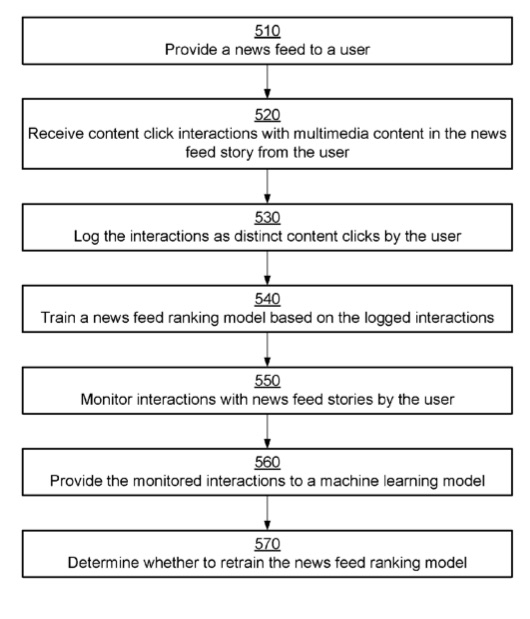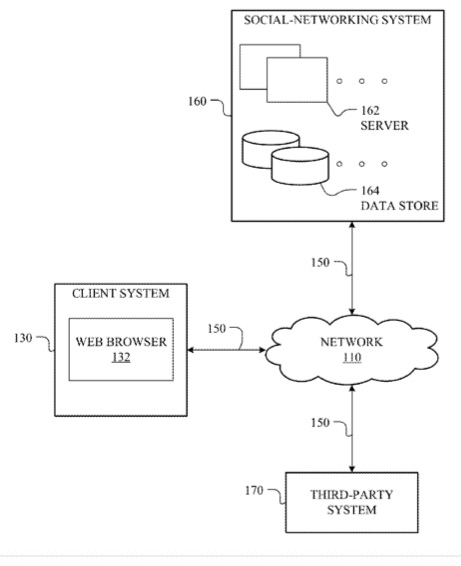 On January 19th, Facebook CEO and founder Mark Zuckerberg announced that his company would increase its efforts against “fake news” by asking its users to rate the trustworthiness of news sources being posted to the social media platform. Zuckerberg wrote that Facebook will utilize ongoing quality surveys to ask users if they are familiar with a particular news source. Using this data, Facebook will then rate each publication based on the user ratings and prioritize those that are most trusted to surface on news feeds. “There’s too much sensationalism, misinformation and polarization in the world today,” Zuckerberg wrote. “Social media enables people to spread information faster than ever before, and if we don’t specifically tackle these problems, then we end up amplifying them.”
On January 19th, Facebook CEO and founder Mark Zuckerberg announced that his company would increase its efforts against “fake news” by asking its users to rate the trustworthiness of news sources being posted to the social media platform. Zuckerberg wrote that Facebook will utilize ongoing quality surveys to ask users if they are familiar with a particular news source. Using this data, Facebook will then rate each publication based on the user ratings and prioritize those that are most trusted to surface on news feeds. “There’s too much sensationalism, misinformation and polarization in the world today,” Zuckerberg wrote. “Social media enables people to spread information faster than ever before, and if we don’t specifically tackle these problems, then we end up amplifying them.”
Since its inception in 2004 as a networking tool for Harvard University students, Facebook is now the “biggest social network worldwide… by a very wide margin” according to online statistics portal Statista.com. According to Omnicore.com, another Internet statistics resource, Facebook had 1.66 billion monthly active users by January 2017. By the end of the first quarter of 2017, that figure seems to have increased up to 1.94 billion monthly active users according to the Statista data.
The Spring 2017 issue of The Journal of Economic Perspectives published a study of the impact of fake news and social media on the 2016 election which was completed by two researchers: Hunt Alcott, an associate professor of economics at New York University, and Matthew Gentzkow, an economics professor at Stanford University. The authors note that, since the 19th century, new publishing technologies have generated worries over their potential impact and now social media platforms like Facebook have raised concerns because of a lack of third-party filtering, fact-checking or editorial judgement. Their research shows that 62 percent of American adults get their news from social media and a Gallup poll suggests that fake news receives four times as much traffic on social media than traditional news sites get. The same Gallup poll indicates that trust in mass media has fallen from 53 percent in 1998 to 32 percent by 2016.
As of August 2017, news sources that remained the most trustworthy in the eyes of their readers were The Economist, public television and Reuters, according to a news survey from the Trusting News Project. Among the least trustworthy news sources according to the study were Occupy Democrats, Buzzfeed, and Breitbart while networks and publications such as NBC, CNN, CBS, The Atlantic, and USA Today were deemed to be of average trustworthiness.
Some concerns about social media and fake news stems from the fear that Millennials between 18- and 34-years of age do not use traditional avenues to find news, but instead passively discover news stories on social media. In 2015, it was shown that 83 percent of all 18-29 year-olds use Facebook according to a poll done by the Institute of Politics at Harvard Kennedy School. However, according to a study done by The Associated Press and The American Press Institute in 2015 of the two-thirds of millennials that regularly consume news online, 40 percent of them read news stories several times per day. Also, Tom Rosenstiel, Executive Director of the American Press Institute, challenged the relevance of the statistic that only 39 percent of Millennials actively sought out news. “There’s a level of activity of participating that wasn’t even possible in earlier times,” Rosenstiel is quoted as saying in an Associated Press article on the study. Further, 70 percent of the more than 1,000 respondents surveyed expressed that their news feeds contain a diverse mix of viewpoints.
Facebook’s user surveys on the trustworthiness of news sources is not the only way which the company collects and uses data to prioritize content, including news content, in a user’s feed. U.S. Patent Application 20170171139, titled Ranking of News Feeds of Content Including Consideration of Specific Content Clicks by Users, discloses a computer-implemented method in which the technology considers a variety of different actions such as “likes” or shares taken by the user as well as more detailed interactions such as enlarging a video to full screen, or rewinding the video.

Certain interactions, such as multiple rewinds performed by a user in order to repeatedly watch a news video, could indicate a higher level of interest than a single click of the play button to watch the video only once. The system is designed to determine whether a particular piece of content was meaningful to a user even if they don’t click “like” or share the content.
A technology for ranking news stories based on the timeliness of those stories is covered by U.S. Patent 9807185, titled Ranking Information Items by Relevance. The patent discloses a method where one or more computing devices collects a plurality of information items of a plurality of types relevant to a user and determining a relevance value for each of the information items comprised in part of a rank boosting factor which is based on whether an importance level of information decreases as times passes. In this way, relevant news stories which are more current are pushed to the top of the feed while others are discarded.

Facebook has also developed technologies for building content feeds which are narrowly focused on a developing or trending news topic. U.S. Patent Application 20160232241, titled Aggregating News Events on Online Social Networks, discloses a method in which one or more computing devices of an online social network, after accessing a set of posts within a certain amount of time, associates each post with one or more topics from which a trending topic is determined. The method also generates a news-event object to associate with the trending topic comprised of a seed post and a tagging algorithm for identifying posts matching the trending topic.

Facebook’s new plan to create a user-informed system of news stories is an attempt to take a stand against fake news on their network and hopefully introduce more objective reporting into the news feeds of users which are populated by articles from all over the Internet. It will be interesting to see if the plan will lessen the traffic of fake news and what sources are considered to be trustworthy.

![[IPWatchdog Logo]](https://ipwatchdog.com/wp-content/themes/IPWatchdog%20-%202023/assets/images/temp/logo-small@2x.png)

![[Advertisement]](https://ipwatchdog.com/wp-content/uploads/2024/04/Patent-Litigation-Masters-2024-sidebar-early-bird-ends-Apr-21-last-chance-700x500-1.jpg)

![[Advertisement]](https://ipwatchdog.com/wp-content/uploads/2021/12/WEBINAR-336-x-280-px.png)
![[Advertisement]](https://ipwatchdog.com/wp-content/uploads/2021/12/2021-Patent-Practice-on-Demand-recorded-Feb-2021-336-x-280.jpg)
![[Advertisement]](https://ipwatchdog.com/wp-content/uploads/2021/12/Ad-4-The-Invent-Patent-System™.png)







Join the Discussion
6 comments so far.
Joachim Martillo
February 16, 2018 02:31 pmI meant The Orville S01 E07 Majority Rule.
Joachim Martillo
February 16, 2018 11:09 amCustomized news aggregation services have executed the described method for a long time. I worked for a trading news aggregator (TDI) that provided precisely this customized service in 1986. (I was not involved in the application development. I worked on fault tolerance, backup, and persistance, but I read the main design documents, for they were necessary to the work I was doing.)
Facebook is currently exemplifying the basic (MIT) computer engineering proverb.
Those that don’t know Multics are doomed to reinvent it.
There is an element of life imitates art in this Blog post.
Zuckerberg should watch The Orville S07 E07 Majority Rule.
BTW, the described machine learning method is also old. We used in a Navy logistics system circa 1984.
In general modern AI, which should be called Simulated Intelligence, is a step backward from what we were doing in the 80s. Modern AI achieves some positive results because machines and networks have become faster while memories common system memories have become much larger.
Christian Chase
February 15, 2018 01:33 pmGene,
Well put. These days, peopel treat the news from the perspective of which team they are on. This is mob mentality, “I think the Raiders will win!,” “No! I think the 49ers will win…” Raw Raw Raw… I try to encourage people not to trust any venue for shaping or reinforceing their opinions.
The truth is not a gray scale or subjective. Right is right and wrong is wrong – period. People must learn to take the time to go to “original sources” before assigning validity!
And then, the answer is not always redily available. Sometimes, issues arise that are born out of pure bias, and only history will bear the correct answear.
Example: I heard numerous reports that the economy would collapse under the current administration’s tax cuts. History shows us that was false. We still have 20 Trillion in debt, but businesses are thriving, bonuses being issued, and people are going back to work by the millions (particularily minorities) and some key unemployment numbers are the lowest since records have been maintained.
Another one: the earth is warming. However, several renouned instituts now report that due to solar activity, we are actually entering a 50 year cooling period. Which is correct? Only history will tell….
Therefore, on most issues, it might pay to withhold bias and let history be the judge.
Thanks
Chris
Gene Quinn
February 14, 2018 11:31 amRoger-
Even if ranking is not a battle of the bots, which I suppose Facebook could ensure if they want, how will ranking of trustworthiness be anything other than a popularity contest mixed with an echo chamber. Don’t most people trust what they themselves already believe?
-Gene
Roger Heath
February 14, 2018 10:17 am“What sources are considered to be trustworthy.”
Therein lies the rub!
Will “ranking” ever be anything more than a battle of the bots!
Anon
February 14, 2018 10:00 amBecause the mob is never wrong…
What could possibly go wrong here?